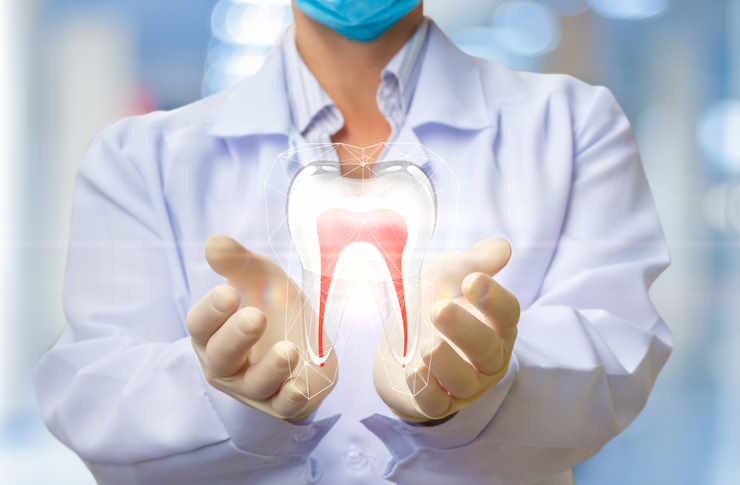Learn About How People Seek Urgent Dental Help - A Comprehensive Guide
Dental emergencies can strike at any time, causing pain, discomfort, and anxiety. Understanding how to seek urgent dental help is crucial for maintaining oral health and preventing long-term complications. This comprehensive guide explores the various aspects of emergency dental care, from recognizing urgent situations to finding the right professional help. Whether you're dealing with a severe toothache, a knocked-out tooth, or any other dental crisis, knowing how to navigate the world of urgent dental care can make all the difference in your treatment outcome and overall experience.

How do people recognize the need for urgent dental help?
Recognizing when a dental issue requires immediate attention is the first step in seeking urgent care. Common signs that indicate the need for emergency dental treatment include severe and persistent toothache, swelling in the face or gums, bleeding that won’t stop, a knocked-out tooth, or a loose adult tooth. Other situations that warrant urgent care are abscesses, infections, or injuries to the mouth or jaw. It’s important to note that any dental problem causing significant pain or discomfort should be evaluated promptly to prevent potential complications.
What are the first steps in seeking urgent dental care?
Once you’ve identified the need for urgent dental help, the next step is to take immediate action. Start by contacting your regular dentist if possible, as many dental practices offer emergency services or after-hours contact information. If your regular dentist is unavailable, search for emergency dental clinics in your area. Some hospitals also have dental departments that can handle urgent cases. While waiting for professional help, you can take steps to manage pain and prevent further damage, such as rinsing your mouth with warm salt water, applying a cold compress to reduce swelling, or using over-the-counter pain relievers.
When should people seek urgent dental help vs. waiting for a regular appointment?
Distinguishing between dental issues that require immediate attention and those that can wait for a regular appointment is crucial. Urgent dental care is necessary for situations that pose a significant risk to your oral health or overall well-being. These include severe pain that interferes with daily activities, uncontrolled bleeding, trauma to the teeth or jaw, and signs of infection such as swelling or fever. On the other hand, minor issues like a small chip in a tooth, a lost filling, or mild sensitivity can often wait for a scheduled appointment. When in doubt, it’s always best to err on the side of caution and consult with a dental professional to determine the urgency of your situation.
How do people find emergency dental services in their area?
Finding emergency dental services can be challenging, especially if the need arises outside of regular business hours. Start by checking with your regular dentist, as many practices have emergency protocols in place. If that’s not an option, use online search engines or dental directories to find emergency dental clinics in your area. Many cities have 24-hour dental emergency services available. Additionally, local hospitals often have information on dental emergencies and may provide referrals to on-call dentists. It’s a good idea to research and save contact information for emergency dental services in advance, so you’re prepared if an urgent situation arises.
What factors should be considered when choosing an emergency dentist?
Selecting the right emergency dentist is crucial for receiving appropriate and timely care. Consider factors such as the dentist’s experience in handling emergencies, their availability (including after-hours care), and the range of services they offer. Location is also important, as you’ll want to choose a dentist who is easily accessible, especially in urgent situations. Additionally, consider the dentist’s technology and equipment, as well as their ability to handle complex cases if necessary. It’s also wise to check if they accept your insurance or offer payment plans for emergency treatments.
How do people prepare for potential dental emergencies?
| Preparation Step | Description | Importance |
|---|---|---|
| Emergency Dental Kit | Include gauze, salt, a small container with a lid, and pain relievers | High |
| Dentist Contact Info | Save regular and emergency dentist numbers in your phone | High |
| Insurance Information | Keep dental insurance details readily available | Medium |
| First Aid Knowledge | Learn basic dental first aid techniques | Medium |
| Regular Check-ups | Maintain routine dental visits to prevent emergencies | High |
Preparing for potential dental emergencies can significantly reduce stress and improve outcomes when urgent situations arise. Creating an emergency dental kit is an essential step in this preparation. This kit should include items such as gauze to control bleeding, salt for making a saltwater rinse, a small container with a lid to store a knocked-out tooth, and over-the-counter pain relievers. It’s also crucial to have your dentist’s contact information readily available, including both regular and emergency numbers. Familiarize yourself with basic dental first aid techniques, such as how to properly store a knocked-out tooth or manage severe pain temporarily. Lastly, maintaining regular dental check-ups can help prevent many emergencies by addressing potential issues before they become urgent problems.
Prices, rates, or cost estimates mentioned in this article are based on the latest available information but may change over time. Independent research is advised before making financial decisions.
In conclusion, understanding how to seek urgent dental help is a vital aspect of maintaining good oral health. By recognizing the signs of dental emergencies, knowing when to seek immediate care, and being prepared with the right information and resources, you can effectively navigate urgent dental situations. Remember that prompt action and professional care are key to addressing dental emergencies and preventing long-term complications.
This article is for informational purposes only and should not be considered medical advice. Please consult a qualified healthcare professional for personalized guidance and treatment.




